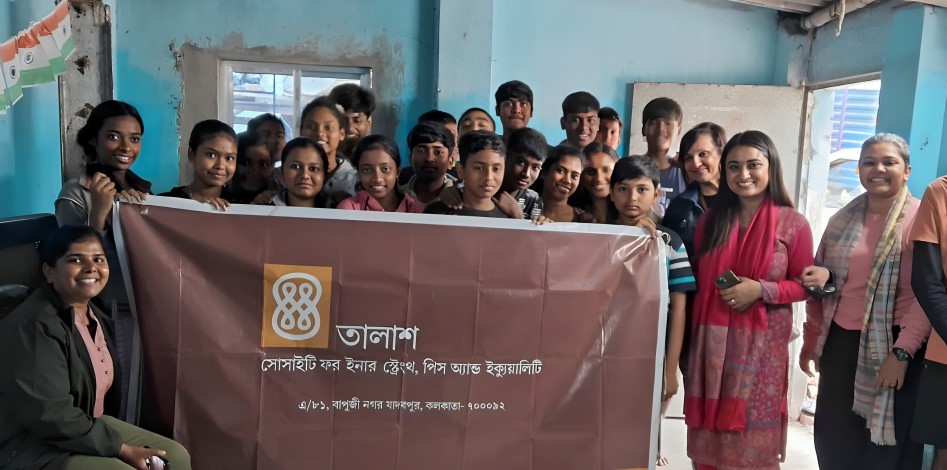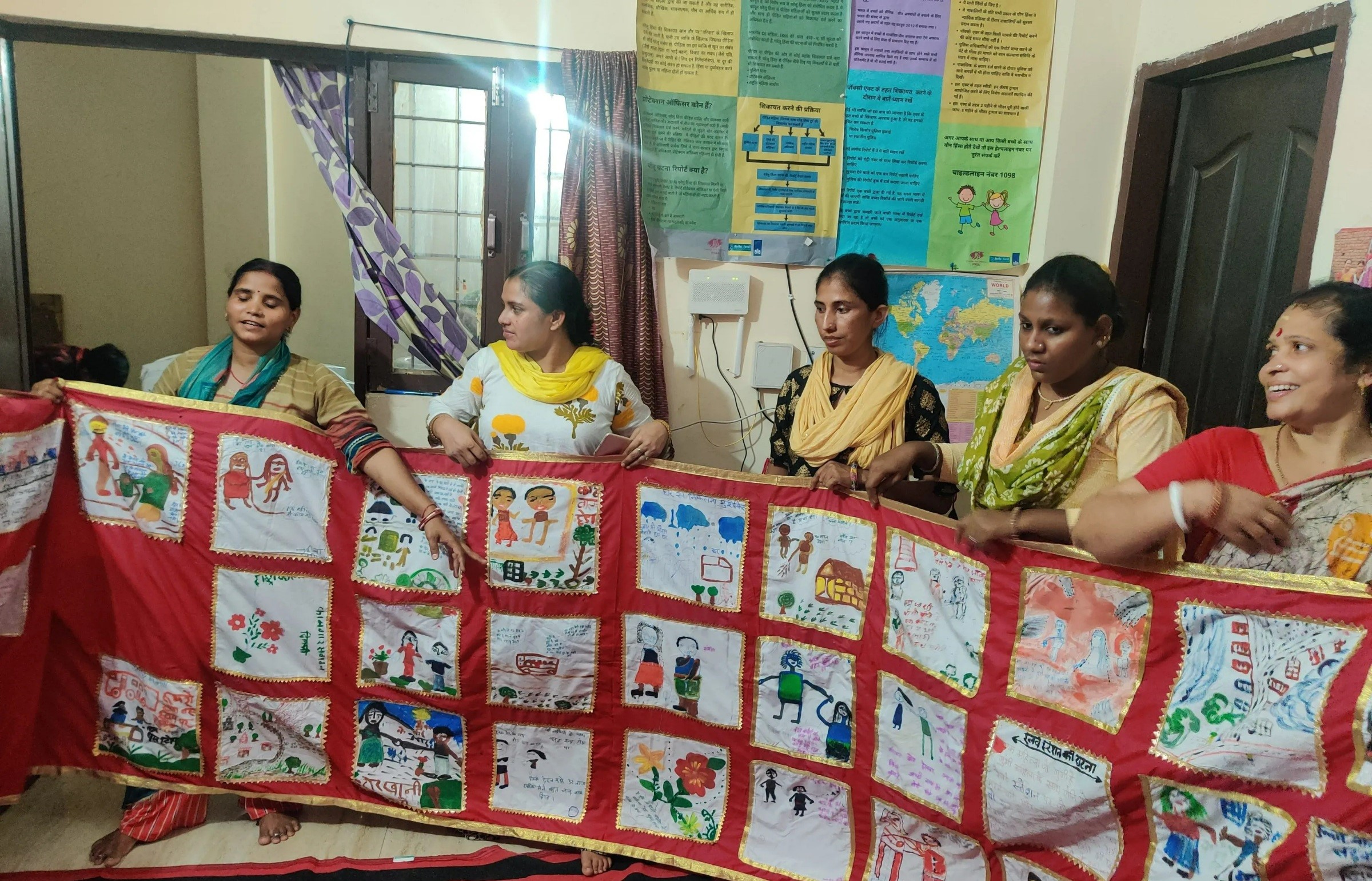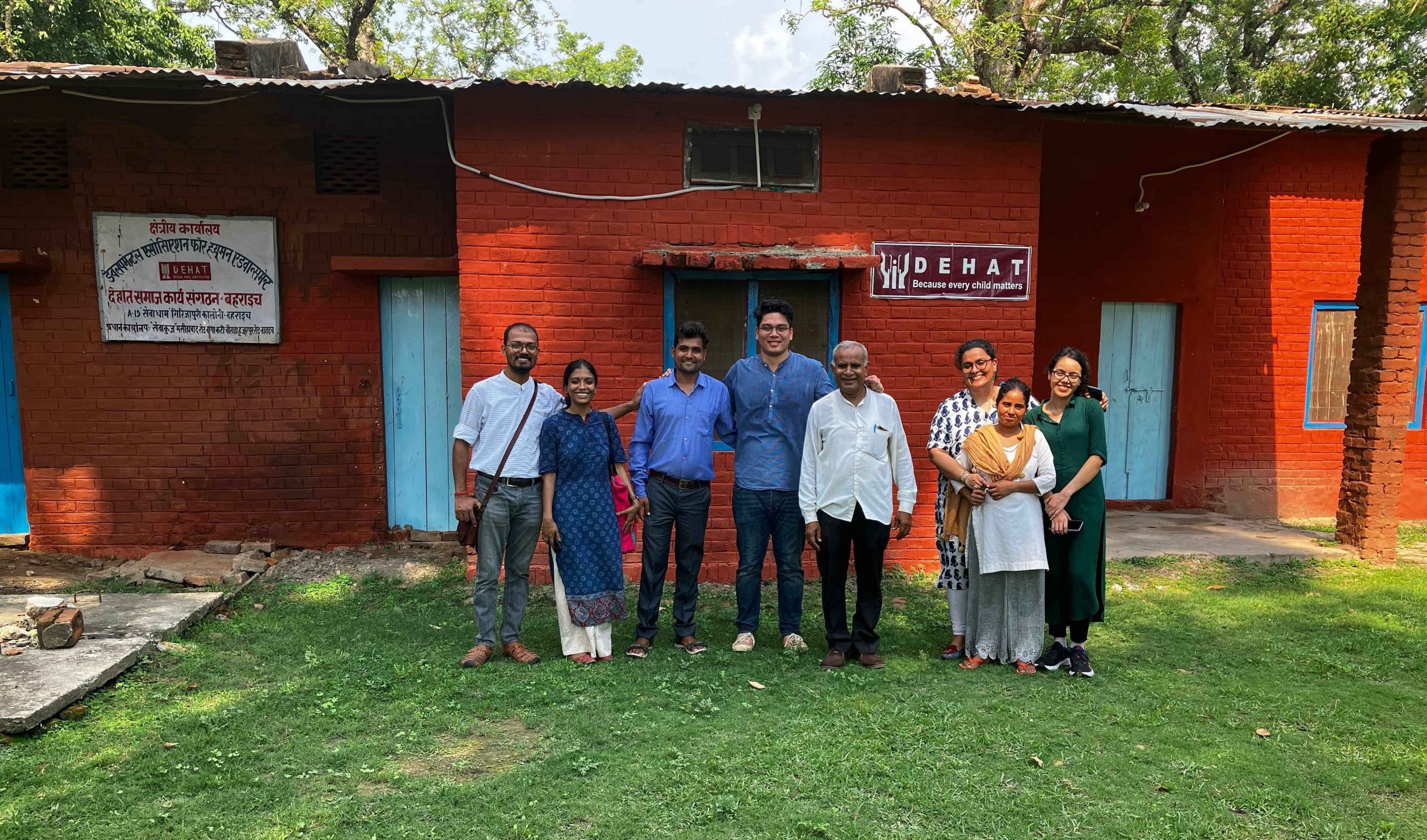After getting lost in the tiny lanes of South Kolkata, we entered the humble office of Talash Society, beautifully done, and the winter sun streamed in through the windows. After sitting and trying “Nolen Gur” or palm jaggery, I had the opportunity to hear about the unique ways of working with young adults to help them behave in a gender equal manner. Most of the community members come from migrant labor community and are prone to sexual, physical and mental abuse.
Ayesha, a very calm and passionate woman, spoke and explained about the unique tools and resources adopted by them for the community. Their aim is to capacitate and empower young girls to re-define their life scripts, bring about a change in the mindset of young boys around gender norms and protect young girls from cyber abuse.
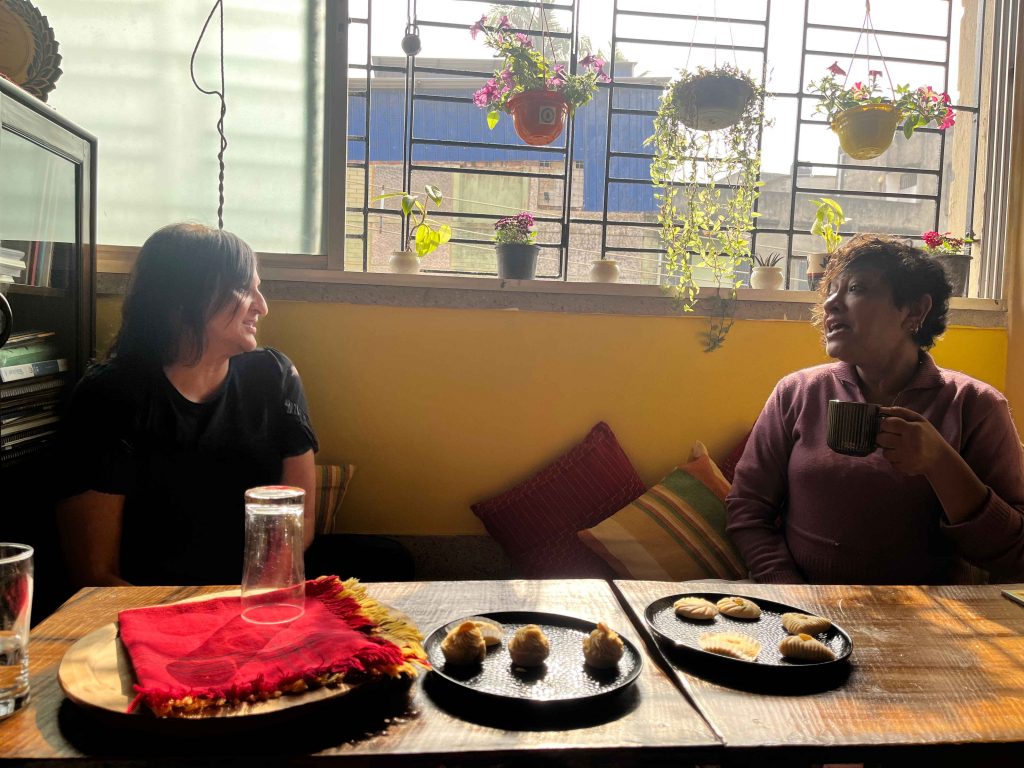
Next, we visited the community center. While driving, we spotted a young girl (in her early 20s) who had been waiting for us to guide us to the centre as she knew the way. She was probably one of the trainers—I felt sorry that she had to wait! Upon entering the community center, I was transported to a different world.
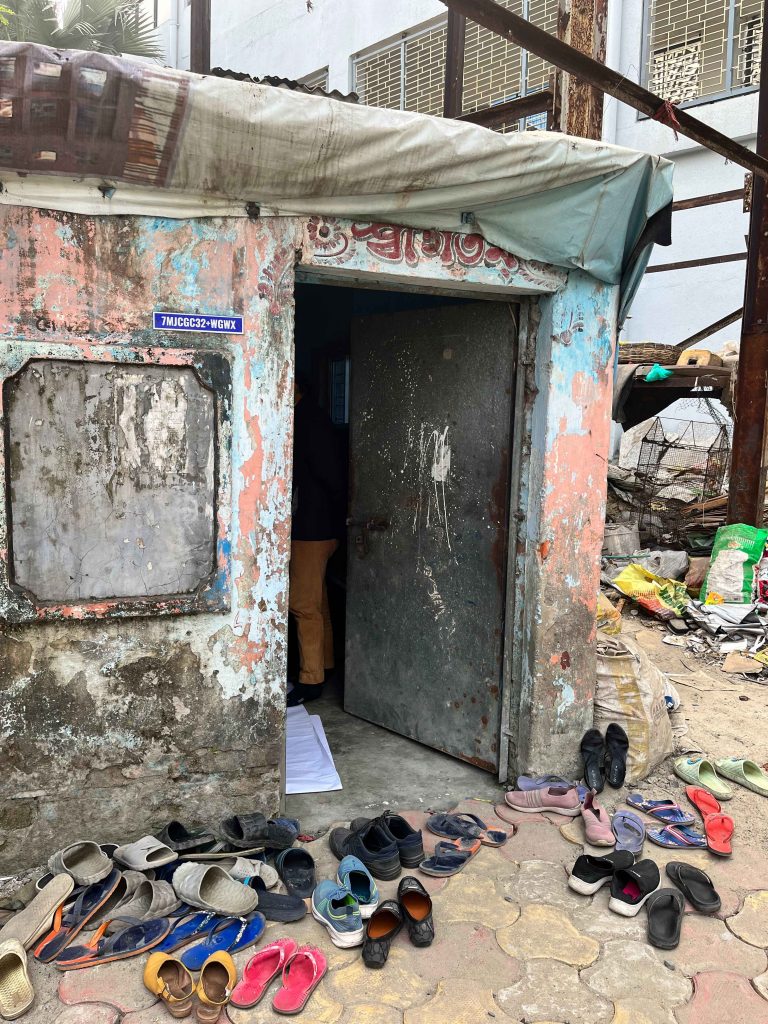
The community centre where the games were played
A young girl was playing a game where she received unlimited calls from random numbers. The placards suggested the next steps: if she wished to continue receiving the calls, she should choose the left path (indicating “yes”), and if she wanted to stop, she should choose the right path (indicating “no”). At each step, she was prompted to consider the challenges and devise solutions. Additionally, she was encouraged to identify whom she trusted. Importantly, she had the option to change her decision at any point, and she was reminded to check in with her feelings at each step.
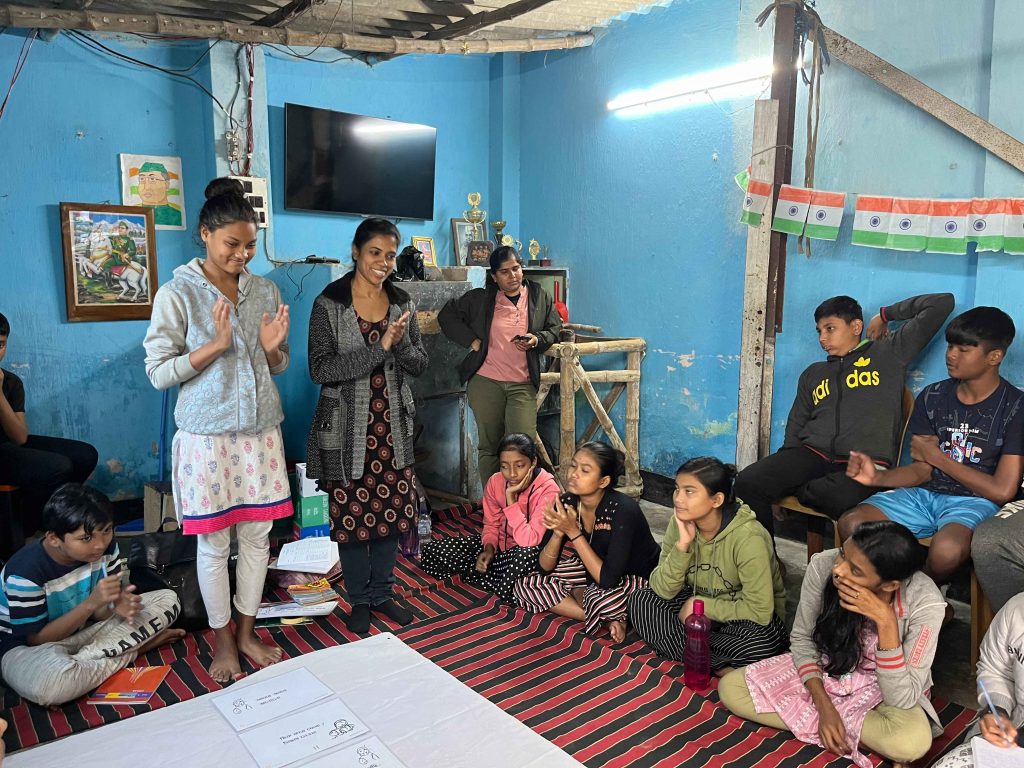
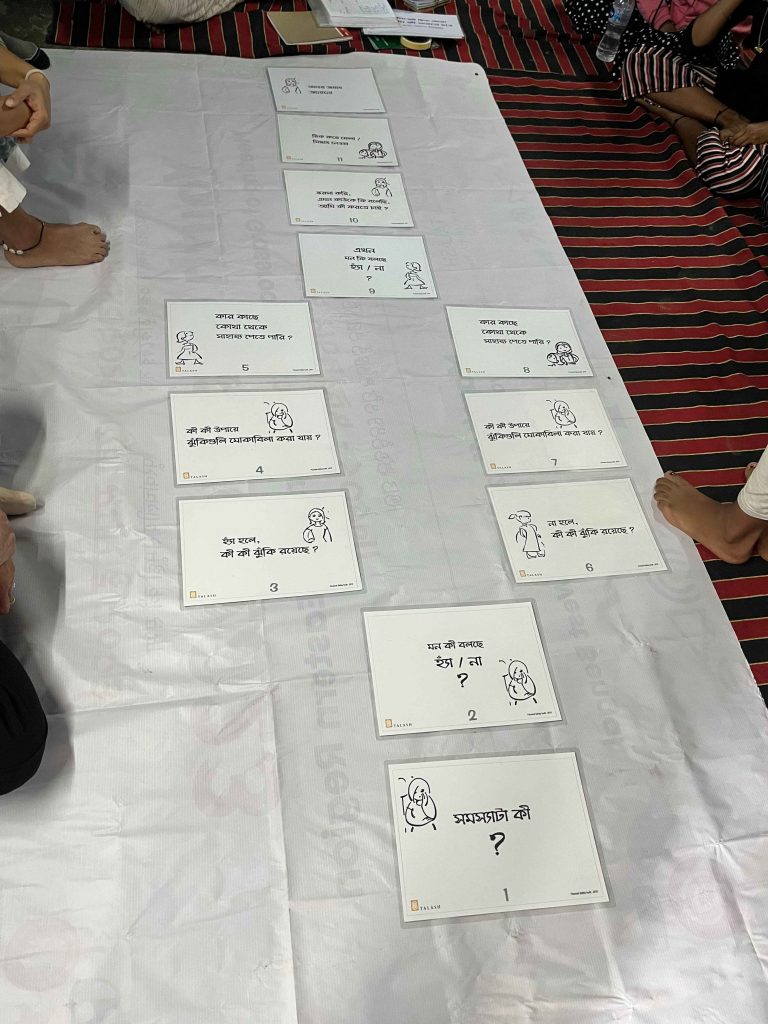
The field workers then told us about a time when the same game had helped prevent an early age marriage. A teenage girl who was scheduled and excited to be married decided to re-evaluate her decision using the game’s question framework. The game equipped her to think of her decision more deeply and holistically and she identified challenges and implications that she had not considered previously. This led her to make the tough decision of calling off her wedding. She then worked with Talaash community leaders and through role-play mustered up the courage to communication her new decision to her family members. This is an example of how these games can be a game-changer in the lives of girls from vulnerable communities.
I had the opportunity to witness the above game which is called the ’11 Steps for Safer Decision Making.’ The placards are called ‘Dance-Floor Cards’ because they believe that reaching a balance can be achieved only through dance. These tools are used to support young girls in understanding their own dilemmas and confusion, enabling them to reach a point of safer decision-making by themselves, without external intervention. This tool is designed to enhance the agency of young people.
Talash employs interesting techniques like the Japanese self-defense system called ‘aikido’, which emphasizes the importance of achieving complete mental calm and control of one’s own body to master an opponent’s attack. The youth enjoyed playing such games, and it was a moral/social learning experience for them. It prepared them for a future where girls would not tolerate abuse, and the boys would view their counterparts as equals, and approach every interaction with the opposite sex with respect and a non-patriarchal mindset.
Boys loved playing a game called ‘Anamika.’ Anamika is a board game based on a fictional woman, devised to bring about a change in the mindset of young boys, to engage them in organically rethinking gender norms and to ensure respectful behavior around the opposite sex. Each boy was asked to throw a dice, and based on the outcome, they received different scenarios, such as ‘getting married to Anamika’ or ‘fighting with Anamika.’ In cases of a fight, the boys were corrected for their behavior by other boys, and those who showed the best behavior received a reward.
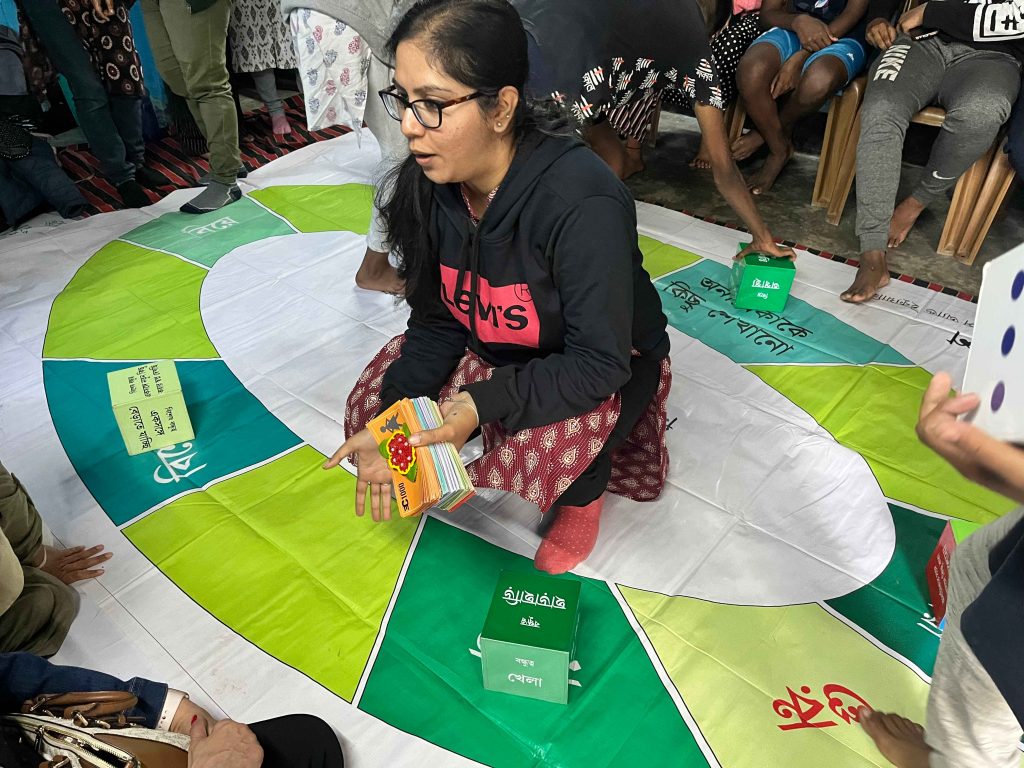
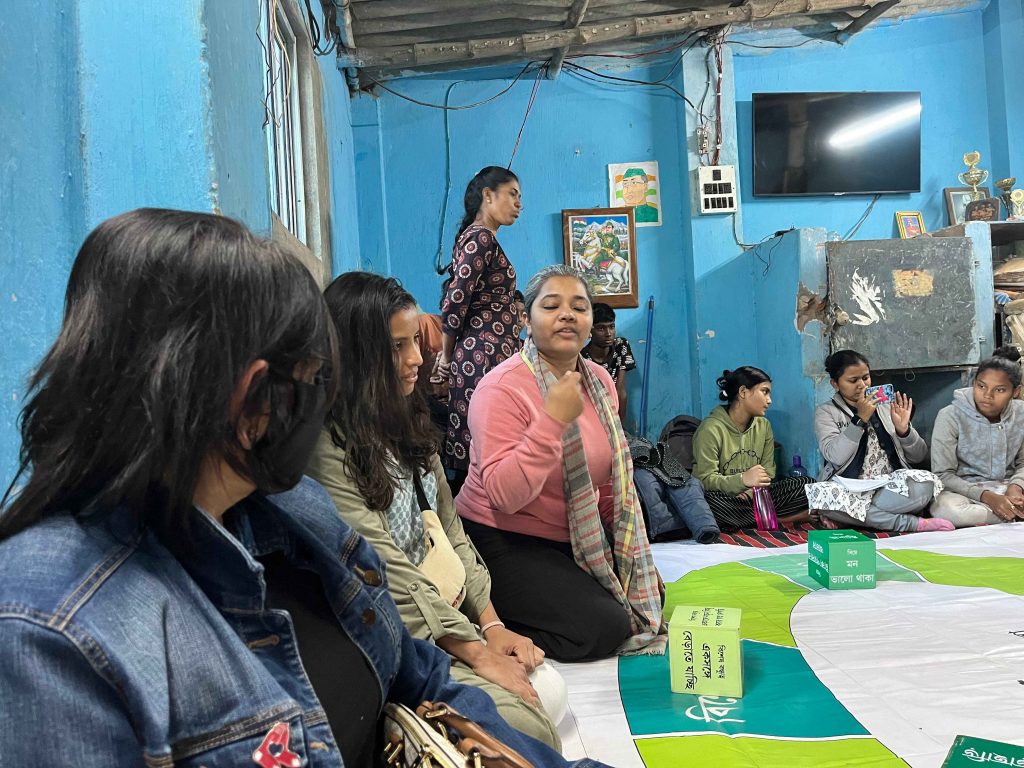
The passionate field workers explaining the game to us
One thing that struck me during this visit was the passion of the field workers—the energy and depth with which they engaged with the boys and girls. We had limited time for conversation, but the field workers ensured that I understood the games despite the language barrier. Then it was time to head home, and during my car journey, I kept thinking – What makes these young field workers so committed and passionate towards their work?
How long will their passion and community commitment sustain them and how long before they are forced to face their financial reality? My takeaway – If we want the non-profit sector to have such committed individuals, we should definitely think of paying them a more sustainable salary.

